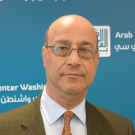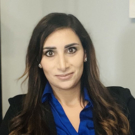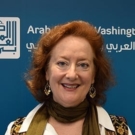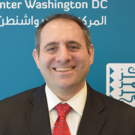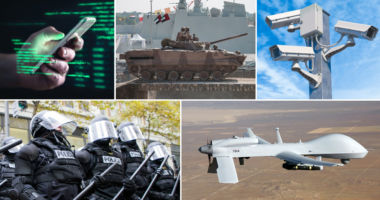
Speakers
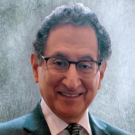
Jean AbiNader
Vice President for Policy
American Task Force on Lebanon
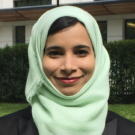
Aisha Al-Sarihi
Research Fellow
National University of Singapore’s Middle East Institute
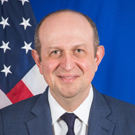
Hady Amr
Deputy Assistant Secretary of State for Israeli and Palestinian Affairs
US Department of State
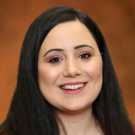
Victoria Araj
Postdoctoral Research Fellow in Public History, Lincoln International Business School
University of Lincoln
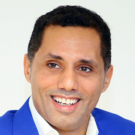
Omar Ashour
Founding Director of the Critical Security Studies Graduate Program (MCSS) and Director of the Strategic Studies Unit
Arab Center for Research and Policy Studies
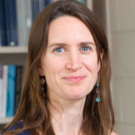
Jessica Barnes
Associate Professor, School of the Earth, Ocean and Environment
University of South Carolina

Marina Calculli
University Lecturer, Faculty of Humanities
University of Leiden
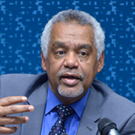
Abdelwahab El-Affendi
Provost and President
Doha Institute for Graduate Studies
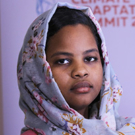
Nisreen Elsaim
Chair
UN Secretary General's Youth Advisory Group on Climate Change
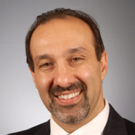
Mehran Kamrava
Professor of Government
Georgetown University in Qatar
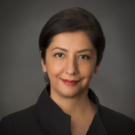
Banafsheh Keynoush
Fellow
International Institute for Iranian Studies
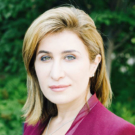
Bessma Momani
Professor of Political Science
University of Waterloo

Pete Moore
M.A. Hanna Associate Professor of Politics, Department of Political Science
Case Western Reserve University
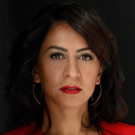
Nancy Okail
President and CEO
Center for International Policy

Kenneth Roth
Former Executive Director, Human Rights Watch

Sarah Leah Whitson
Executive Director
Democracy for the Arab World Now (DAWN)
About the Seventh Annual Conference
Autocratic leaders in the MENA region have been investing heavily in regime survival and stability post-Arab Spring, strengthening security and military institutions at the expense of economic and social development. They have also worked to establish regional and global alliances that rely more on military cooperation than on diplomacy, and that emphasize regime security while simultaneously neglecting the importance of defending human rights, prioritizing democratic governance, and seeking just and long-term solutions to festering conflicts. Meanwhile, significant shifts in the region’s geopolitical environment are impacting such issues as the regional approach to Iran, US-Gulf relations, the rehabilitation of Bashar al-Assad’s regime, Turkey’s regional role, Arab normalization with Israel, and an increasingly common Arab turn toward Asia and toward developing closer relations with Russia and China.
At the same time, the Biden Administration appears to be both reviving and reinforcing the long tradition in American foreign policy of advocating a narrow and short-term focus on securitization and stability at the expense of human rights and democracy, despite President Biden’s rhetorical stance regarding “US values” and the importance of holding autocratic regimes accountable. The president’s July 2022 visit to the Middle East, which was primarily dedicated to building military and security alliances in the region and to propping up authoritarian states and regimes, is an excellent case in point. While the US and its authoritarian Arab allies continue to develop and strengthen their security stances, citizens of the Middle East and North Africa are increasingly experiencing greater insecurity in terms of economic conditions, food security, access to clean water, healthcare, adequate shelter, digital rights, harmful effects of climate change, and both personal and collective safety.
Arab Center Washington DC dedicated its seventh annual conference to the issue of securitization in the Middle East and North Africa, the growth of which has led to greater economic and social insecurity for the vast majority of the region’s population. This conference also assessed the impact and implications of shifting global and regional security alliances and provided recommendations for US policy going forward.
Conference Agenda
Day 1: Wednesday, October 12, 2022
Keynote Address: Western Policy Toward the Middle East and North Africa: Anything but Human Rights
Speakers
Kenneth Roth
Former Executive Director, Human Rights Watch
Khalil E. Jahshan – Moderator
Executive Director, Arab Center Washington DC
Session Summary
Kenneth Roth addressed the United States and European nations’ utter lack of concern for human rights in the Middle East, which he called “a human rights black hole when it comes to western policy.” Roth argued that western governments simply prioritize other issues such as oil and gas, counterterrorism, and migration control, much to the detriment of the populations of Middle East countries. He highlighted the cases of Saudi Arabia, Egypt, and Israel/Palestine, especially as they relate to the hypocrisy of the United States government in particular, which espouses a rhetoric championing human rights and democracy, but which repeatedly fails to put its words into practice.
- On this point, Roth stated, “Secretary Blinken has said that the US would be guided by human rights. But in fact, these are…words distinct from reality.”
Roth offered a bit of hope, however, suggesting a potential path for the US and other western governments to remedy their dismal approach to human rights in the Middle East, a path that would begin by acknowledging the extent to which these governments’ “blatant hypocrisy” continues to undermine their position in the ongoing global contest between democracy and autocracy, with the latter exemplified by the Chinese Communist Party’s dictatorship under President Xi Jinping.
- Roth stated that “[Western governments] are basically giving Xi Jinping a gift through the hypocrisy in the Middle East by allowing him to say, ‘You talk about human rights, but when you have any kind of interest there, whether it’s oil, or migration, or just protecting Israel, human rights go out the window.’ And that could come back to haunt this very important global effort.”
- On the US-Saudi relationship, and on President Biden’s July visit to Saudi Arabia in order to get Crown Prince Mohammed bin Salman to raise oil output, only to see OPEC+ lower oil output just a few months later, Roth said, “Biden sold his supposedly core human rights principles for nothing.”
- On the accelerating pace of repression in Palestine, Roth said, “Entrenched repression has led Human Rights Watch and others to say, ‘This is apartheid.’ The answer to apartheid is not the ‘peace process,’ which is pointless, but equal rights. Nobody is pushing that; certainly not the US government or its major western partners.”
- On western governments’ approach to human rights, Roth stated, “Western democracies have to be better attentive to how their democracies are doing at home…But they also have to look at how they are operating abroad. Is the defense of human rights, the defense of democracy a pure matter of convenience, or is it a principle that they abide by even if it may be a little difficult to do so?”
09:30 AM – 11:00 AM
Session I: Regional Security Concerns and Shifting Global and Regional Alliances
Speakers
Omar Ashour
Professor of Security and Military Studies, Doha Institute for Graduate Studies; Founding Director of the Critical Security Studies Graduate Program (MCSS) and Director of the Strategic Studies Unit, Arab Center for Research and Policy Studies
Marina Calculli
University Lecturer, Faculty of Humanities, Leiden University
Banafsheh Keynoush
International Geopolitical Consultant, Scholar, and Author; Nonresident Scholar, Middle East Institute; Fellow, International Institute for Iranian Studies
Yousef Munayyer
Nonresident Senior Fellow, Arab Center Washington DC
Mehran Kamrava – Moderator
Head of the Iranian Studies Unit, Arab Center for Research and Policy Studies; Professor of Government, Georgetown University Qatar
Session Summary
This panel explored the recent wave of shifting global and regional alliances in the Middle East and North Africa, examining both the geopolitical factors driving these fluctuating dynamics and security alliances and the impact and long-term implications of these changes. Experts discussed regional security issues and geostrategic competition regarding relations with Iran, proxy conflicts, non-state armed groups, political violence, sectarianization, rivalries between states and Islamist actors, protracted conflicts and civil wars, and the impact of both Arab-Israeli normalization and a regional pivot toward Russia and China.
11:00 AM – 12:30 PM
Session II: Prioritizing Security, Undermining Human Rights
Speakers
Abdelwahab El-Affendi
Provost and President, Doha Institute for Graduate Studies
Pete Moore
M.A. Hanna Associate Professor of Politics, Department of Political Science, Case Western Reserve University
Nancy Okail
President and CEO, Center for International Policy
Sarah Leah Whitson
Executive Director, Democracy for the Arab World Now (DAWN)
Laurie King – Moderator
Teaching Professor, Department of Anthropology, Georgetown University; Member of the Board of Directors, Arab Center Washington DC
Session Summary
This session focused on the impact of militarism, authoritarian alliances, and security apparatuses in the Arab world on prospects for democracy and respect for both human rights and political freedoms across the region. Panelists discussed the region’s emerging authoritarian axis, weapons trade, and security cooperation, as well as these elements’ impact on political economy, human security, and domestic socioeconomic development. The panel also assessed the US role in providing a security umbrella, diplomatic support, and military aid, all of which enable authoritarian rule and provide regime stability at the expense of human rights and human security for the region’s population.
Day 2: Thursday, October 13, 2022
09:00 AM – 09:30 AM
Special Conversation with Hady Amr on the Prospects for Peace in Palestine/Israel
Speakers
Hady Amr
Deputy Assistant Secretary for Israeli and Palestinian Affairs, Bureau of Near Eastern Affairs, US Department of State
Khalil E. Jahshan – Moderator
Executive Director, Arab Center Washington DC
Session Summary
Hady Amr discussed the United States’ ongoing work in Israel/Palestine, highlighting the Biden administration’s “powerful moral commitment” to “rebuilding a political horizon” for the Israeli-Palestinian conflict. He also discussed the administration’s concern regarding an uptick in violence, with 2022—which Amr called “one of the more painful years in a long time”—having so far seen more than 24 Israelis and 150 Palestinians killed. Amr emphasized the US commitment to a two-state solution along the 1967 lines, to engaging with civil society leaders, and—citing a speech President Biden gave in Bethlehem—to “equal measures of freedom, security, and prosperity” for both Palestinians and Israelis. He also highlighted the Biden administration’s work to provide $800 million in economic assistance to the Palestinians, to bring additional water resources to Gaza, to secure the legal status of Palestinians in the West Bank, and to obtain over 10,000 Israeli work permits for Palestinians from Gaza—the highest number in 15 years.
- On the escalation of violence, Amr said that the administration is “deeply concerned about the situation on the ground, and particularly the human toll,” and that it is both “calling on the key parties to exercise maximum restraint and take steps to restore calm” and also “remaining actively engaged with Israeli and Palestinian counterparts to urge them to work cooperatively to lower tensions and discourage armed conflict.”
- On the lack of progress toward a more equal situation, Amr stated, “Palestinian frustration at the lack of tangible progress is understandable. And the administration will continue to look for ways to advance and explore building a political horizon to move in that direction.”
- On the trajectory of the conflict and the hope for a solution, Amr said, “While a negotiated solution may be difficult to imagine today or tomorrow, we are still working as best we can to make tangible improvements in the everyday lives of both Palestinians and Israelis, to lay the groundwork for a future resolution.”
09:30 AM – 11:00 AM
Session III: Tackling Escalating Threats: Climate Change, the Future of Energy, and Cybersecurity
Speakers
Jean AbiNader
Middle East Analyst and Writer; Vice President for Policy, American Task Force on Lebanon
Aisha Al-Sarihi
Research Fellow, National University of Singapore’s Middle East Institute
Nisreen Elsaim
Chair, UN Secretary General’s Youth Advisory Group on Climate Change; Chair, Sudan Youth Organization on Climate Change
Tamara Kharroub – Moderator
Deputy Executive Director and Senior Fellow, Arab Center Washington DC
Session Summary
This session was dedicated to assessing both future and currently escalating security threats to the populations of the Middle East and North Africa, particularly as they relate to the rapidly growing climate crisis, the future of energy and the oil industry in the region, and an increasingly aggressive cybersecurity and surveillance industry. Panelists discussed the impact of climate change and the energy crisis on the people of the region and provided policy recommendations and strategies to mitigate climate change and move toward energy transition and renewable energy sources.
11:00 AM – 12:30 PM
Session IV: The Future of Human Security: Responding to Economic Crises, Violence, Health Emergencies, and Food Insecurity
Speakers
Victoria Araj
Postdoctoral Research Fellow in Public History, Lincoln International Business School, University of Lincoln
Yara M. Asi
Assistant Professor in the School of Global Health Management and Informatics, University of Central Florida; Nonresident Fellow, Arab Center Washington DC
Jessica Barnes
Associate Professor, School of the Earth, Ocean and Environment, University of South Carolina
Bessma Momani
Professor of Political Science, University of Waterloo
Imad K. Harb – Moderator
Director of Research and Analysis, Arab Center Washington DC
Session Summary
This panel addressed various issues related to human security and insecurity in the region, including poverty, unemployment, food insecurity, lack of access to clean water, exposure to violence, displacement, and shortages in healthcare services and medications. Panelists discussed the impact of corruption, inadequate governance, protracted conflicts, and authoritarian rule on this lack of basic services, on personal and collective safety, and on economic security in the region, especially taking into account growing military expenditures.
Speaker Bios
The speakers’ bios are available in PDF format. To read more, click here


